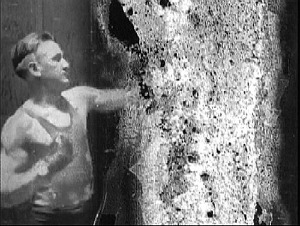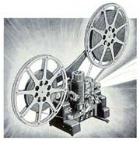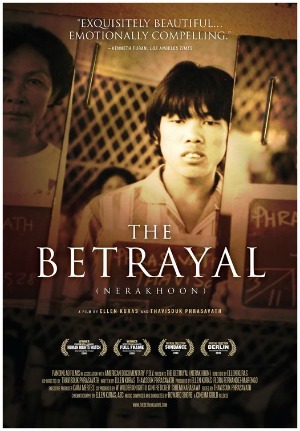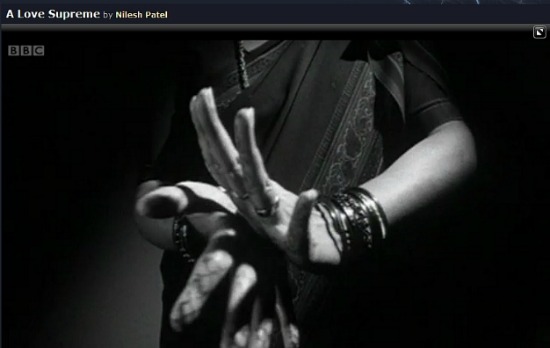Date: October 24-December 11, 2011
Location and Time: Rubenstein Library Gallery during library hours
Contact Information: Karen Glynn, 919-660-5968 or karen.glynn(at)duke.edu
Benjamin Lowy’s powerful and arresting color photographs, taken through Humvee windows and military-issue night vision goggles, capture the desolation of a war-ravaged Iraq, as well as the tension and anxiety of both U.S. soldiers and Iraqi civilians.
To photograph on the streets unprotected was impossible for Lowy, so he came up with the brilliant approach of making images that illuminate this difficulty by shooting through the windows and goggles meant to help him, and soldiers, to see. In doing so he provides us with a new way of looking at the war—an entirely different framework for regarding and thinking about the everyday activities of Iraqis in a devastated landscape and the movements of soldiers on patrol, as well as the alarm and apprehension of nighttime raids.

Lowy’s work was selected from over two hundred entries in the fifth biennial Center for Documentary Studies/Honickman First Book Prize in Photography competition, judged by William Eggleston. Lowy will speak about his work during the exhibit’s opening reception on Thursday, November 10th at 5:30 PM in the Rare Book Room.
An online exhibit is available on the Libraries’ website as well.
Lowy received a BFA from Washington University in St. Louis in 2002 and began his career in 2003 when he joined Corbis and embedded with the U.S. Army’s 101st Airborne Division to cover the Iraq War. In 2005 Photo District News chose Lowy’s Iraq images as some of the most iconic of the start of the 21st century. Lowy’s photographs appear regularly in national and international such publications as the New York Times Magazine, Newsweek, Fortune, the New Yorker, Vanity Fair, Stern, and Rolling Stone. His work has been exhibited at San Francisco MOMA, Tate Modern, Open Society Institute’s Moving Walls, Noorderlicht Photofestival, Battlespace, and the Houston Center for Photography, among others.
The Archive of Documentary Arts at the Rubenstein Library acquired the exhibit photographs through the generosity of the Honickman Foundation established by Lynne Honickman. Harold Honickman sits on the board of the Honickman Foundation and is a member of the Duke University Library Advisory Board. The gift of Benjamin Lowy’s photographs supports the Rubenstein Library’s commitment to acquiring photographic collections that have artistic merit and that reflect the visionary purposes and documentary impulses of their creators.
Post contributed by Karen Glynn, Photography Archivist for the Archive of Documentary Arts.











